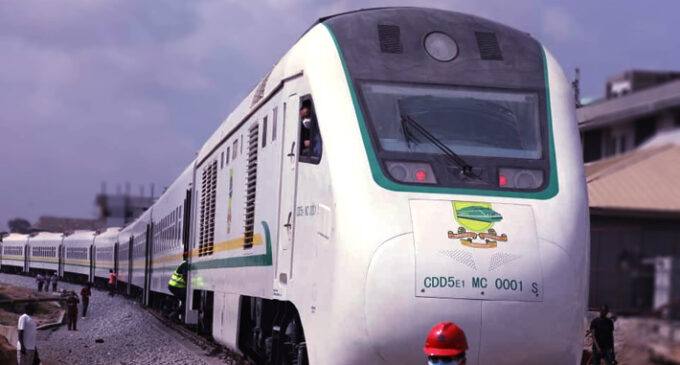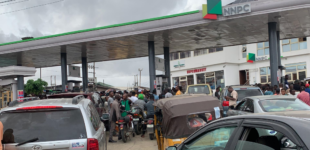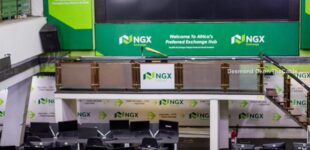NRC reduces trips on Lagos-Ibadan route over diesel price surge

The Nigerian Railway Corporation (NRC) says it has reduced the number of trips on the Lagos-Ibadan train service due to the hike in the price of automotive gas oil, better known as diesel.
TheCable understands that the development would affect the revenue drive of the sector as rail transport contributed N6 billion last year.
Speaking with The Punch on Tuesday, Fidet Okhiria, NRC’s managing director, said the corporation has cut down the number of return trips on the route from six to two every day.
“The Lagos-Ibadan train service is running, but we have reduced the number of trips on that route because of the diesel problem. We reduced the number of trips we are running because of the hike in diesel price,” Okhiria was quoted as saying.
“We are now doing two return trips as against six, which by now should have gone to 10. So we run just two trips now due to the diesel problem.”
Despite the rising cost of operations, the NRC boss said it was outside the corporation’s powers to hike fares.
He said the corporation had sent recommendations to the federal ministry of transportation for an adjustment in the train fare.
“We just can’t increase it by ourselves. The government has to do that. We have made some recommendations. But even with the recommendations we made, the new price of diesel has overshot our workings as contained in the recommendations,” Okhiria said.
“However, we don’t want to price ourselves out of the market too, because the price of petrol is not increasing as such, rather the increase is little when compared to diesel price. And you know we are competing with transporters on roads.”
In the last five months, the price of diesel has hit N800 per litre, representing a 28 percent increase — it sold for 625/litre in March.
Luke Ofojebe, head of research, Vetiva Capital, had told TheCable that the hike in diesel price was due to disruption in the global oil market.
Ofojebe said the reason is that Nigeria still depends on imported petroleum products from other advanced countries — and high oil prices translate to high landing costs for the products.
He added that since petrol is regulated, its pump price will remain relatively stable but will lead to high subsidy expenses on the part of the government.















There are no comments at the moment, do you want to add one?
Write a comment